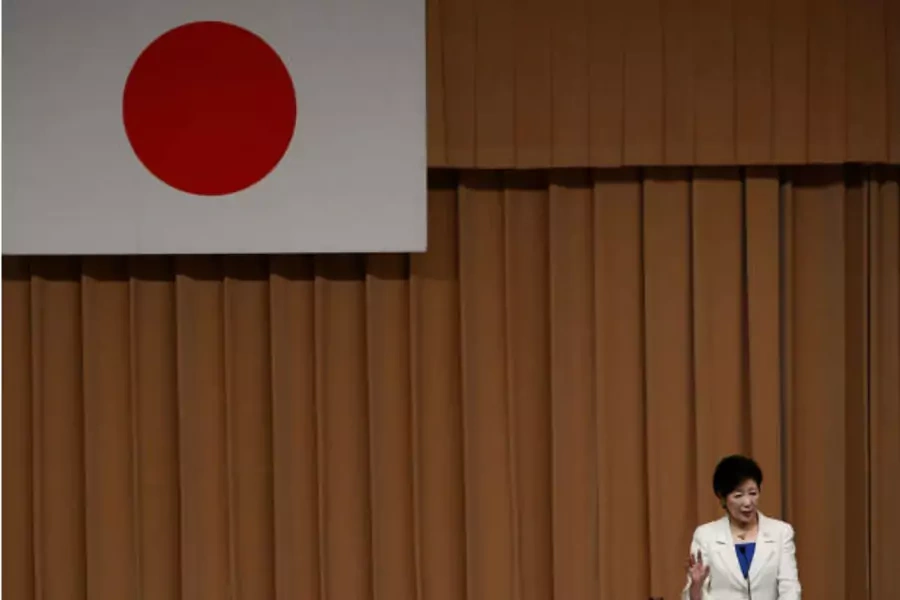Women Around the World: This Week

More on:
Welcome to “Women Around the World: This Week,” a series that highlights noteworthy news related to women and U.S. foreign policy. This week’s post, covering from July 30 to August 5, was compiled with support from Becky Allen, Anne Connell, and Lucy Leban.
Women’s political representation in Japan This week, Tokyo elected Yuriko Koike as its first female governor, who previously served as the first woman Defense Minister in Japan. While downplaying the historic nature of this week’s gubernatorial election in her public statements, Koike highlighted her intention to pursue economic and social policies that promote women’s advancement, including addressing a shortage of childcare in Japan’s largest city. Koike’s successor, Tomomi Inada, became the second woman to take the defense post, following Prime Minister Abe’s cabinet reshuffle. Inada, viewed by many as a hardline conservative “Abe protégé,” is rumored to be a likely candidate for prime minister in a future election.
Nigeria invests in women entrepreneurs The Nigerian government announced this week a new N150 billion ($1 billion) investment in women’s entrepreneurship across the country. Earlier this year, Nigeria earmarked N1.6 billion of its N500 billion Social Protection Fund to support microfinance loans for women. According to Nigerian President Muhammadu Buhari, the loans and new investment in entrepreneurship will enable women “across the nation to assist in rehabilitating the economies of rural communities, particularly those impacted by the insurgency and conflict.” The increased investment in women comes as Nigeria’s National Gender Policy undergoes review to “enhance participation of women in all spheres.” The policy, approved by Nigeria’s Federal Executive Council in 2006, aims to increase women’s economic and political participation, promote women’s legal rights, reduce gender-based violence, and change deeply-rooted cultural beliefs about the role of women.
Violence against Dalit women and girls A 14-year-old Dalit girl who was raped and forced to drink a corrosive substance died last week in a hospital in Shalimar Bagh, India. The girl was allegedly kidnapped in May and held captive, hands and feet bound, and repeatedly assaulted for weeks. After hospitalization, she succumbed to internal injuries caused by forced consumption of an “acid-like” substance. Local police claim that they lack sufficient evidence to prove that the girl was held against her will, and no charges have been filed against the alleged perpetrators. The case has gained attention amid a wave of other reports of extreme violence against Dalit women and girls: a rape and murder of a woman in Kerala in May, which sparked protests; a raped and mutilated 11-year-old girl whose body was found under a tree last month; and the assault of a young woman who previously reported a gang rape to law enforcement. While rates of violence against women in India are among the highest in the world, this series of incidents sheds light on the particularly high rates of brutal and often unprosecuted violence faced by the Dalit, or “untouchables,” who comprise the lowest caste in Indian society.
More on:
 Online Store
Online Store